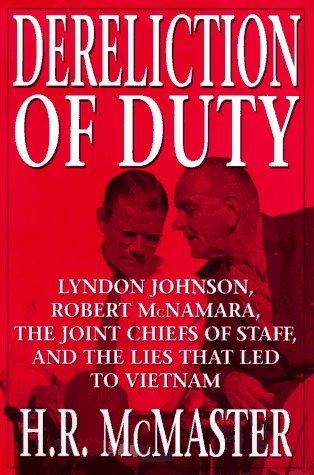[by Joseph Guerra]
Let me start by saying it is an honor to be able to comment on such a classic work of strategic thought in such a forum as this. I thank Mark/zen for this opportunity and hope that I am able to do justice to this subject.
I approach Thucydides’s work from a Clausewitzian strategic theory perspective. The book can be seen as perhaps the earliest attempt in Western literature to come up with a theory of grand strategy. There is a lot to be said for this approach. If we consider that Clausewitz’s general theory of war could be part of a larger general theory of strategy, or grand strategy, then a relationship between the two classic works, that is Clausewitz’s On War and Thucydides’s The Peloponnesian War becomes clear.
This could come across as questionable for many, since at first glance the two books are quite different. Clausewitz discusses various types of theory in his book providing military historical examples to make his point. Thucydides gives a detailed history of a specific conflict from various perspectives; provides a intricate view of political relations, including narratives of the time. Raymond Aron came up with an interesting comment on the two authors which puts these distinctions within a common context:
It seems that we owe the great books on action to men of action whom fate deprived of their crowning achievement, men who arrived at a subtle blend of engagement and detachment which left them capable of recognising the constraints and shackles of the soldier or the politician and also capable of looking from outside, not indifferently but calmly, at the irony of fate and the unforeseeable play of forces that no will can control. Philosophy presents an image of pessimism. For what, may one ask, makes victories precarious and the state unstable? Whoever devotes himself to the state chooses to build sandcastles. There remains for him only the hope of Thucydides or that of Clausewitz: “My ambition was to write a book which could not be forgotten after two or three years, but which could be taken up several times when required by those who take an interest in this subject.” Clausewitz, Philosopher of War, p 12.
Book 1 of The Peloponnesian War offers various points for consideration from a Clausewitzian perspective. The conflict is rooted in the political relations of the various communities involved (see “War is an Act of Human Intercourse”, Book II, Chapter 3). Sparta initially uses a Strategy of Annihilation, whereas Athens a Strategy of Attrition, to use Hans Delbrück’s terminology. Both sides display various stages and types of moral and material cohesion which varies as the conflict progresses. All three of these would warrant comment from this perspective, but there is an additional aspect which I intend to introduce here and deal with in future posts. This is the concept of strategic narrative.
One of the advantages of Clausewitz’s general theory of war is that it is compatible with a wide range of other strategic thought which is not limited to the military. Such different (non-military) thinkers as Max Weber, Reinhold Niebuhr and Martin Luther King approached social action and community perceptions from a distinctly Clausewitzian outlook. All would understand the importance of strategic narrative.
In his book, War From the Ground Up, Emile Simpson not only defines strategic narrative, but links it to Clausewitz:
‘Strategic narrative’ is a contemporary term, but is a formalisation of a concept that has been present in all conflicts. Strategic narrative is the explanation of actions. It can usually be detected chronologically before conflict starts, in some form, as the explanation for participation in, or initiation of, the conflict; strategic narrative also operates as the explanation of actions during and after conflict.
Strategy seeks to relate actions to policy. A policy outcome is ultimately an impression upon an audience. It can be a physical impression, which in war would typically be defined in terms of death and destruction. It can simultaneously be a psychological impression, typically defined in terms of an evolution in political alignment, not necessarily by consent. For strategy to connect actions to policy it must therefore invest them with a great meaning in relation to its audiences, both prospectively and retrospectively. page 179-180.
This narrative should be realised in a coherent set of actions which give it expression . . . strategic narrative is not just concerned with audiences exterior to one’s side, or coalition. One of the key functions is to achieve unity of effort, ideally to give coherent expression to that side’s will, as Carl von Clausewitz would put it. page 182.
A strategic narrative that is seen as incoherent or contradictory by the various audiences, or becomes incoherent over time, will obviously fail in its purpose.
James Boyd White (“the other Boyd”) devotes an entire chapter to Thucydides in his When Words Lose Their Meaning. The tight fit between the speeches provided by Thucydides throughout The Peloponnesian War and the strategic narrative then in effect act as an indicator of how these various strategic narratives develop or decay over time. The words also act as reflections of the loss of moral and material cohesion within the various political communities depicted as the war progresses. Boyd White describes accurately Thucydides world as related in Book 1:
. . . this was a highly structured world, rich in resources for argument and action. The very fact that the cities could jockey for position as they did, each seeking to place the other in the wrong, shows that they operated on terms established by a shard and comprehensible discourse and that each was acting in part for an audience, internal or external, who would use that discourse to judge what it did. Thucydides now gives us the opportunity to learn something about the nature of that discourse, for at this moment Corcyra sends a delegation to Athens to ask for an alliance, and Corinth sends a representative to resist them. Thucydides presents their speeches in considerable detail.
This is a highly literary moment, of which we can ask: Of all the things that might be said here, what will the speakers choose to say? How will they try to persuade the Athenians to do what they want them to? To what values will they appeal, for example? What pleas, what charges, what veiled or explicit threats or promises, will they make? Will they call on the gods, on compassion or justice, or on tradition of the law? Will they appeal to the Athenians’ economic or military self-interest, and if so how will they define these things? Or will they appeal to the Athenians’ sense of their own character, say, as virtuous or brave or generous, and how will they do that? In what terms will they tell their stories? page 62
Book 1 fittingly ends with Pericles’s speech to the Athenians (1.140-144), where he lays out clearly the strengths and weaknesses of the two sides. He accurately depicts Athens’s advantage at the onset and rightly fears the potential blunders of his own side over the strengths and strategy of the enemy. Given her position among the Greeks, Athens has no choice but to fight.
On to Book 2.




